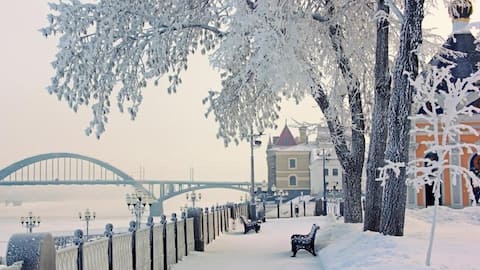Sweden hits -43.6°C; experiences coldest January in 25 years
What's the story
Sweden recently faced its chilliest January night in 25 years, with temperatures dropping to a frigid -43.6°C in the far north. This is the lowest January temperature since 1999, as reported by Mattias Lind, a meteorologist at Sweden's national weather agency SMHI. The freezing conditions have also impacted neighboring Finland, setting a seasonal record of -38.7°C in the northern Lapland region on Tuesday evening.
Details
Impact on transportation and infrastructure
The extreme cold has caused disruptions in transportation and infrastructure throughout the region. In Sweden, local bus operators had to cancel services, and train operator Vy announced the cancellation of all trains north of the city of Umea for several days. Finland also experienced train disruptions due to the cold weather. Moreover, frozen water pipes have been reported, leaving around 300 people in the Finnish city of Tampere without running water on Tuesday.
What Next?
Cold front expected to move south
Over the next few days, the cold front is expected to move southward, with temperatures in Helsinki already rising to -15°C on Wednesday. Lind mentioned that Wednesday's measurement was taken at the Kvikkjokk-Arrenjarka station in Sweden's far north, marking "the lowest temperature that has been recorded in this specific spot since measurements began" at the site in 1888.
Denmark
Many Nordic states are also experiencing stark weather conditions
Several other destinations in the Nordic region are also recording temperatures below -40°C during this cold snap. In western Europe, high winds and rain caused flooding and at least one fatality. As wind and snow pounded the northern and western regions of Denmark, police throughout the majority of the country advised drivers to avoid making needless trips.
Russia
Russia is also facing unprecedented cold weather
Western Russia has also been hit by a wave of frigid air from Siberia and the Arctic region, resulting in temperatures in Moscow and other areas falling to -30°C, which is significantly below the average for early January. Authorities have issued orange weather warnings in Moscow, St. Petersburg, and other locations, alerting locals to potential health risks.
